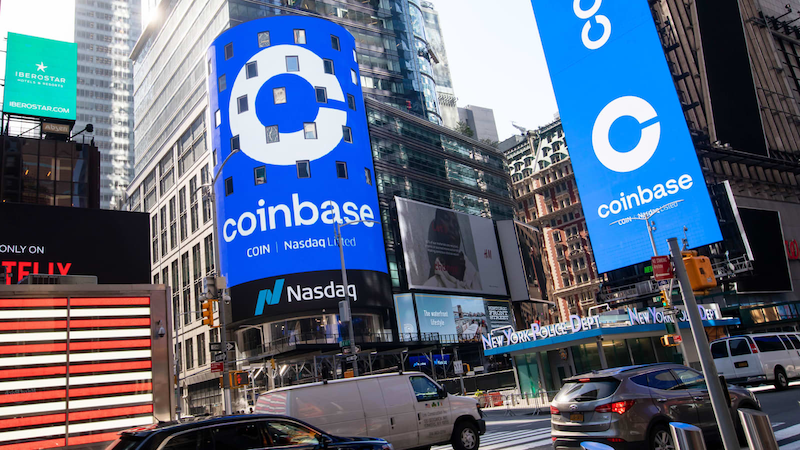Join Our Telegram channel to stay up to date on breaking news coverage
Ishan Wahi, a former employee of Coinbase, entered a plea of guilty on Tuesday to two counts of conspiring to commit wire fraud in relation to an insider trading scam at the exchange.
But even while the Department of Justice received the outcome it sought, Wahi continues to be charged by the Securities and Exchange Commission (SEC). And it could have far-reaching effects that go beyond just him.
Wahi, his brother Nikhil, and their friend Sameer Ramani were all charged with wire fraud in July, and on the same day, the SEC added civil allegations of securities law violations against the three.
The case revolves around Wahi giving the San Francisco-based exchange knowledge about impending token listings in order to make around $1.5 million in illegal gains. However, the SEC also asserted in its initial complaint that at least nine of the tokens used in the insider trading scheme on Coinbase are unlawful securities.
7/ Here, the SEC isn't just accusing the defendants of breaking the law.
The SEC is also accusing ten unrelated, uncharged companies of breaking the law: nine for failure to register digital asset securities & one for operating an unregistered national securities exchange.
— Jake Chervinsky (@jchervinsky) July 22, 2022
If the court rules in the SEC’s favor, it would “inhibit creators and developers’ [ability] to create assets in the future,” according to Marisa Tashman Coppel, policy counsel for the Blockchain Association, which claimed the case could have “major consequences on the sector.”
The classification of digital assets as securities or commodities—under the jurisdiction of the SEC or Commodity Futures Trading Commission (CFTC)—has been a contentious issue in the cryptocurrency world. Gary Gensler, the chair of the SEC, has only categorically stated that Bitcoin is a commodity and that the majority of other cryptocurrencies are unregistered securities.
The nine digital assets, according to the SEC, are “investment contracts,” which are when funds are put in a group venture with the reasonable expectation that benefits will be realized through the efforts of others. A favorable decision would support that position, according to Coppel.
Six of the nine assets—AMP (AMP), Rally (RLY), DerivaDEX (DDX), XYO (XYO), Rari Governance Token (RGT), LCX (LCX), Powerledger (POWR), DFX Finance (DFX), and Kromatika (KROM)—are still tradeable on Coinbase.
The fact that the nine token’s inventors are not defendants in the SEC’s complaint and are therefore unable to participate in the litigation, according to Coppel, makes the case partially a “due process problem.” It may be extremely bad for the sector, she said, if this is a sign of a wider pattern by the SEC.
If the Wahi brothers and Ramani are found to have broken the law, it may have repercussions for other players in the digital asset market as well. For example, it may be necessary for token developers to register with the SEC before launching their projects or it may paint Coinbase and other exchanges as places where illegal securities are sold.
The other parties who traded, bought, or sold the tokens “would theoretically also be in breach of securities regulations,” Coppel added.
The SEC’s position has been refuted by Wahi’s legal representatives. On the grounds that the in question digital assets do not meet the requirements to be called an investment contract, they moved to have the SEC’s accusations dismissed on Monday.
They contend that the “fundamental parts” of an investment contract, such as the contract itself, which puts obligations on the seller following the sale, such as the legal right to receive a portion of the profits, are missing from the tokens.
The motion claims that”
The SEC does not—and cannot—allege that the tokens involve contracts between developers and token-holders.
In actuality, following the sale, the tokens’ developers are under no legal responsibilities.
The argument advanced by Wahi’s attorneys is that secondary market token purchases are “no different than when someone buys a baseball card” since consumers transmit their money to unconnected third parties like exchanges rather than investing it in a single business.
Regulation by enforcement
The case shows the SEC’s attempt to use the legal system to influence regulation of digital assets. Opting to develop rules by going after allegedly bad actors rather of putting forth clear laws with the possibility for people to provide feedback, the strategy has been criticized as “regulation by enforcement” by opponents.
Caroline Pham, a CFTC Commissioner, addressed how the decision could change the digital assets market when the SEC brought securities fraud charges in respect to the insider trading scheme at Coinbase.
She added,
The SEC’s claims could have substantial ramifications beyond this particular instance. A transparent procedure that involves the public works best to answer major questions.
Read my statement on #SEC v. Wahi, regulation by enforcement & #CFTC authority #crypto #digitalassets #DAO pic.twitter.com/xbHvyshx8l
— Caroline D. Pham (@CarolineDPham) July 21, 2022
Paul Grewal, the chief legal officer of Coinbase, resisted the SEC’s regulatory blitz shortly after it filed accusations. “The SEC is depending on these types of one-off enforcement actions to try to bring all digital assets within its jurisdiction,” he added. “Instead of establishing tailored laws in an inclusive and transparent way.”
The foundation of what makes up an investment contract dates back to 1946. The Supreme Court determined that William John Howey’s sales of citrus grove plots were unregistered securities because they included a service agreement under which he promised to care for the land and provide produce to people who bought the fruit-bearing sections.
In this case, Wahi’s attorneys claimed,
The SEC is using a novel construction of an isolated term from a Depression-era law to assume regulatory power over a trillion-dollar sector built upon breakthrough technology poised to define the next generation of the internet.
When it comes to the so-called Howey test, the SEC’s 4-pronged procedure for establishing whether an investment contract exists, however, not every SEC employee concurs with Gensler. On an episode of Decrypt’s Gm! podcast, SEC Commissioner Hester Peirce stated that the test has significant restrictions, one of which is its permanence.
She added that explanation from the SEC on how a token may go from a security to a commodity with specified criteria would help allay some worries with the SEC’s approach. “We’ve said that orange grove is going to be treated as a security in perpetuity,” she said.
To apply the Howey test and say, “Hey, that initial time when you sold it, that very well have been a securities offering,” Peirce said, “I think that there would be less objections if we were more exact. But that doesn’t mean that the token continues to be a security for the remainder of its life.”
The Howey test has also been a source of contention in other instances where the SEC has pursued participants in the cryptocurrency industry while claiming that tokens are unregistered securities. Ripple Labs, its co-founder Christian Larsen, and CEO Brad Garlinghouse were named in a lawsuit filed in late 2020 accusing them of earning $1.3 billion through the sale of the XRP coin in unregistered securities offerings since 2013.
Both Ripple and the SEC submitted petitions for summary judgment in September, asking for the case to be dismissed and a decision to be reached in their respective favors. Additionally, Coinbase took steps to strengthen the company’s legal stance in November despite speculation from legal experts that the SEC would probably lose the lawsuit if it went to trial.
The business requested that a document be filed on behalf of Ripple’s legal position by Judge Analisa Torres, who preside over Ripple’s lawsuit in a Southern District of New York court. A crucial point was that, unlike some stocks, digital assets sold on an exchange do not grant individuals ownership of a business or allow them to participate in a company’s profits through dividends.
Although these judgments may have significant ramifications for the crypto industry, Coppel said that they would not be precedent-setting since judges in other federal districts may find the readings plausible but are not obligated to follow them.
However, if they are appealed, those decisions may start to establish a precedent across some of the United States as they move through the federal court system, and if they ever reach the Supreme Court, they may end up becoming the supreme law.
Whatever the case, it seems the SEC won’t be abandoning enforcement actions from its regulatory arsenal anytime soon. The San Francisco-based cryptocurrency exchange Kraken was hit with a $30 million fine and settled charges by the SEC on Thursday for using its staking-as-a-service program to generate nearly $1.5 million in illegal profits. However, the SEC also asserted in its initial complaint that at least nine of the tokens used in the insider trading scheme on Coinbase are unlawful securities.
Related
- Coinbase CEO addresses rumors that US SEC might ban crypto staking
- Crypto companies accused by SEC of offering unregistered securities
- Ripple Brings In New President In Time For Final Judgment
Join Our Telegram channel to stay up to date on breaking news coverage


